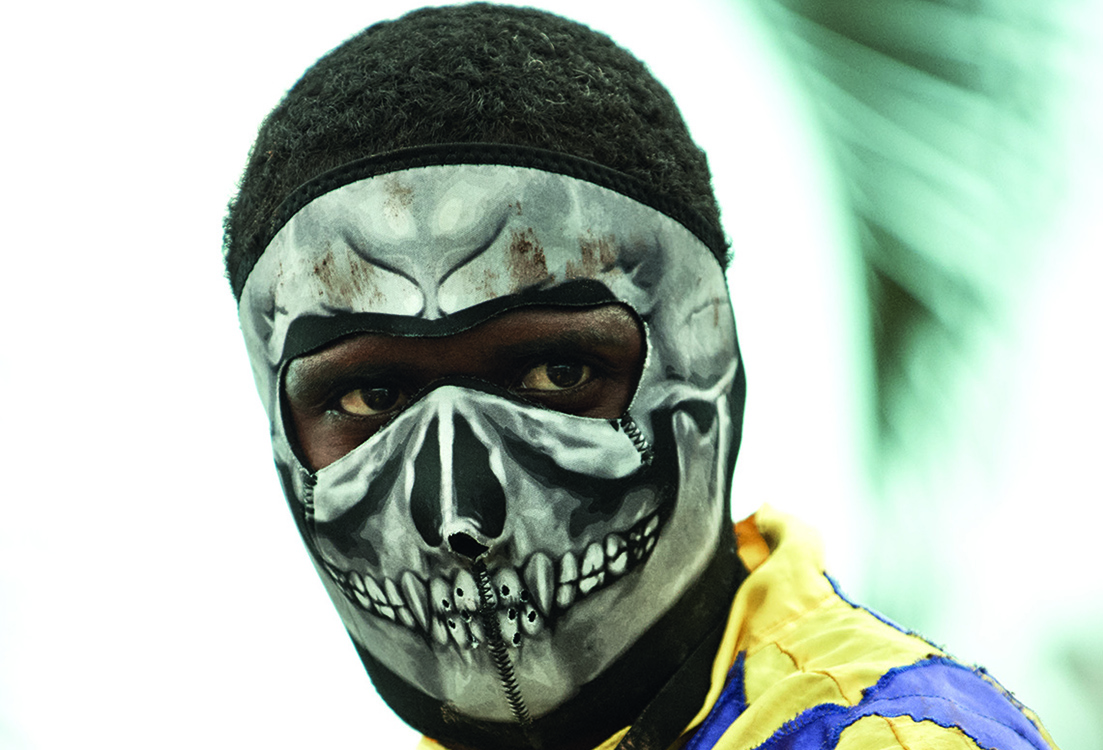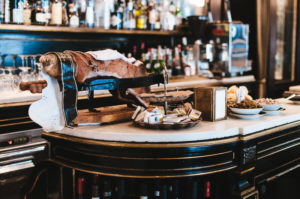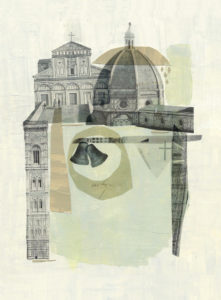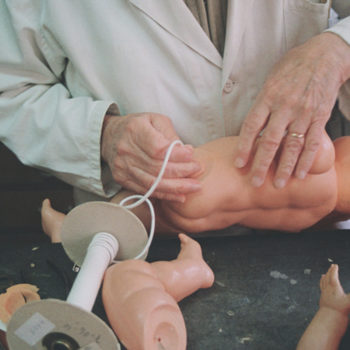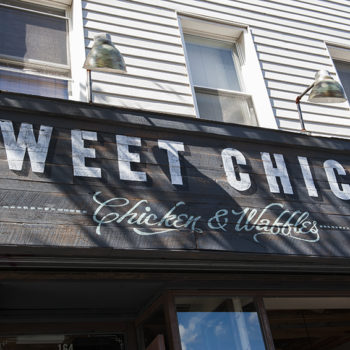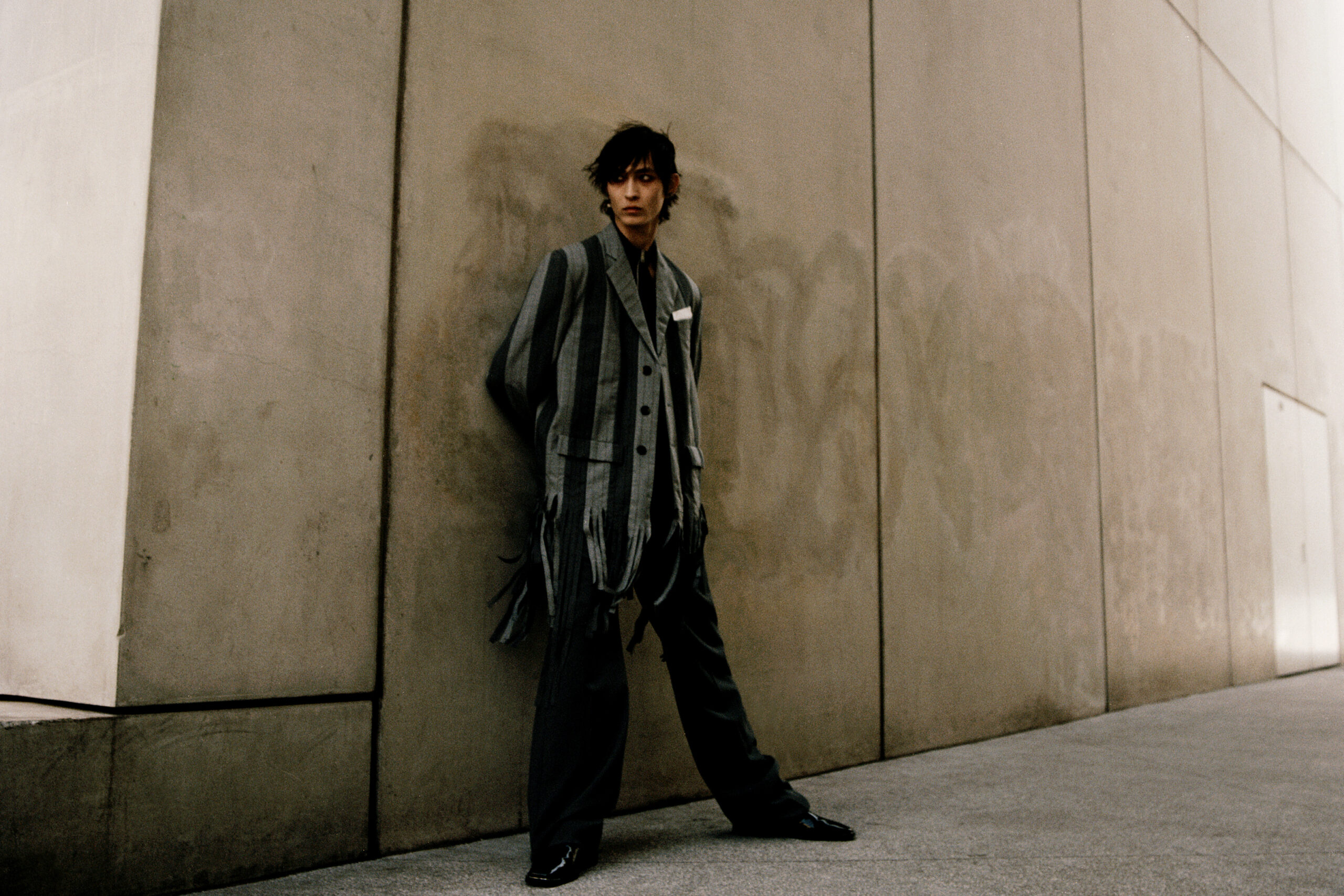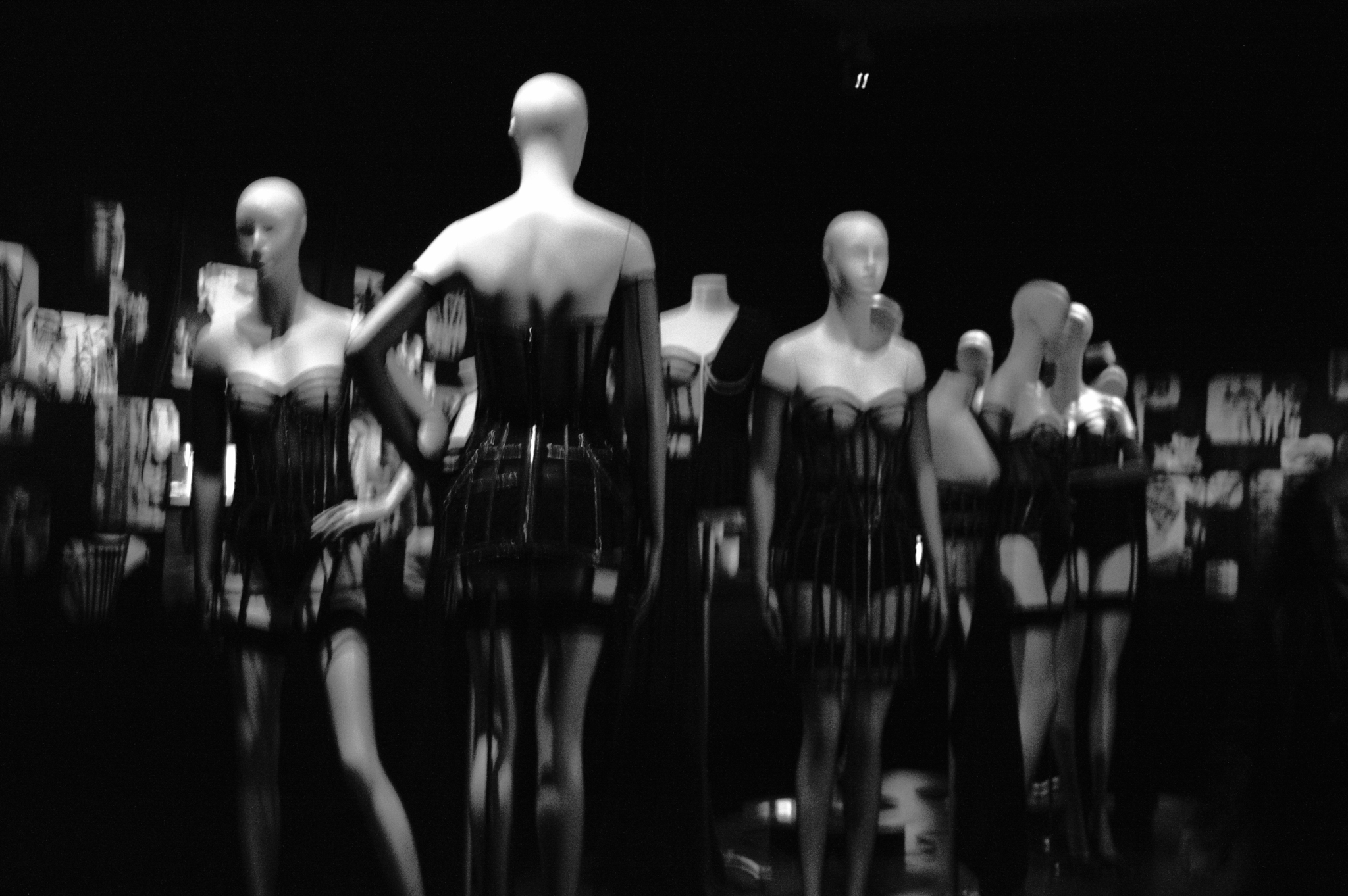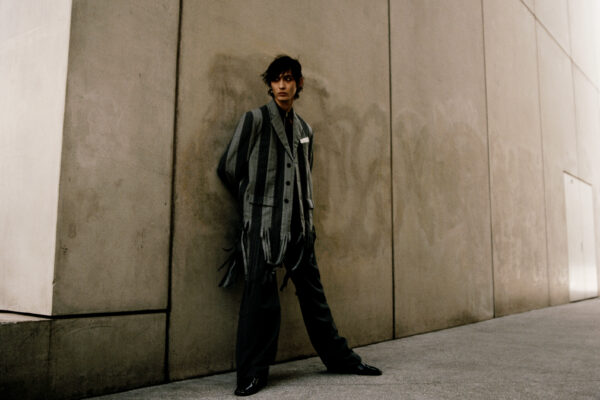by ANICÉE GADDIS
photography ALESSANDRO SIMONETTI
ISSUE X
“With these big races, it’s either going to be a great day or a really sad day but either way we will be fine. Racing takes you through all types of emotions … there is no between.”
– Spencer Chung
You first met Spencer Chung nearly a year ago through a friend who assured you that he was the young don of Caribbean horse racing. At just 40 years old, he had already produced a record-breaking filly, St. Cecelia, named after his grandmother who was a first generation Jamaican-Chinese shop owner. On a sun-bleached Saturday, you rode with your friend to Caymanas Park, located in Portmore, about an 11-mile drive from downtown Kingston, and watched your first horse race in Jamaica with Spencer. He showed you the lay of the land and the fascinating and bittersweet universe surrounding a life lived on the track.
You kept in touch and one year later Spencer invited you to the biggest race next to the Derby, the Super Stakes, held in early November. His horse, Typewriter, was running in the Super and St. Cecelia would be competing in the Sprint Championship. There were 13 races in total scheduled for that day. It would be St. Cecelia’s last race, her “last hurrah” according to The Sunday Observer, as she was 7 now and ready to retire and begin breeding. It was going to be a big day for Spencer, the kind of feast or famine reckoning he’d been preparing for all year. His seven-day-a-week, 4 a.m. call times at the stables would either garner him a healthy war chest or leave him with an empty coffer. Speaking with him on the phone, you could taste his anticipation from 1,500 miles away.
You hop the 2 a.m. flight from JFK to Norman Manley with the photographer and arrive early Friday morning to a see a heathery mist settling over the city of Kingston. Welcome to the bible isle, the spice isle, you think, reminding yourself of the ubiquitous presence of Jamaican culture the world over despite the island’s small size. That evening you meet Spencer for dinner at The Regency Bar at the Terra Nova Hotel and are surprised by how calm and sociable he is considering the weight of the day ahead. Thirteen races. Seven horses in competition. A 4.5 million Jamaican dollar purse. He assures you that he’s ready for tomorrow, and tells you it’s best to arrive at the track early if you want to capture the full spectrum of the Super Stakes. As Spencer drives you back to the apartment where you are staying, there is a shift in his mood, revealing a more private side of himself. “You only get one chance,” he says, watching the road ahead. “It could be the lowest of the lows or the highest of the highs … it’s a once a year thing.”
On the way to the track the following morning, your driver, Roy, plays a CD by Andrea Bocelli, the blind Italian opera singer, and you find the epicness of his voice set against the dancehall-inflected buzz of traffic and the old world whistle of peanut vendors and the shouts of young men crushed three to a seat on mopeds to be remotely harmonious. You arrive, get bustled amongst a queue of men waiting to get in, and feel a slow-burn electricity begin to turn the lights on in your thinking.
Caymanas Park looks like something out of a Colonial era film set. Built in 1959, the track has changed very little since its erection according to Fernando Geddes, another trainer you meet while watching the horses circling the show ring in preparation for the first race of the day. Fernando was born the year Caymanas was built and grew up alongside the Husseys, one of the oldest horse racing families in Jamaica. He tells you he started as a jockey at age 15 and then graduated up to a trainer, which is a highly competitive profession in Jamaica. He says that Jamaica has a history of producing record-breaking jockeys, including Charles Hussey, a four-time champion with some 3000 wins, whose likeness lines an all-star wall of who’s who in the game along with George HoSang (who is Chinese-Jamaican), Richard DePass and Winston “Fanna” Griffiths who established a world record with eight consecutive Classic wins. Fernando mentions that Charles regularly rode Spend A Buck—a horse that went on to win the Kentucky Derby. You are paying close attention and when Fernando pauses and asks you why you’re here, you tell him you’re a friend of Spencer’s. “He’s doing pretty fine,” he admits with a shuttered smile, “kind of a young legend really. He produced the two-time horse of the year, St. Cecelia, so that’s hard to compete with really.”
As you watch the animals making their way to the track, Fernando tells you that the first horses arrived in Jamaica in the early 1500s. As the horses are loading into the starting gate, he mentions that the first winner on the opening day of Caymanas back in ’59 was a colt named Roman Road. Once the horses take off, he says that rumor has it the first horse to ever win the Kentucky Derby was Jamaican.
You watch the first three races together. You begin to get into the rhythm of things. You begin to see the patterns of studying the odds, betting, growing punch-drunk from victory, bracing against another loss, then repeating the cycle with an edgy obsessiveness over the course of the day. One of the world’s oldest sports and one of Jamaica’s most popular, you’ve been told that horse racing dates back to 4500 B.C. and was part of the Greek Olympics by 638 B.C. As a testament to its popularity, Jamaican horse racing employs upwards of 20,000 people from jockeys and breeders, to trainers and bookmakers, to grooms and track employees. You are told the island continues to dominate the Caribbean horse racing circuit.
You are relaxed now and beginning to enjoy the energy in the grandstands that at first felt over amplified but is now filling you with a mellow kind of high. You begin to notice the extreme masculinity of the atmosphere, the chaotic sense of chivalry, where hardened young men and lithe-bodied veterans intermix with pockets of overjoyed children who seem to be enjoying the best Saturday of their lives. Between the constant traipse from the saddling show ring to the betting kiosk to the track and back again, there is a steady adrenaline that carries you from the pulsating frenzy to the more hushed interludes followed by another bet, another beer, another race. You feel invisible but somehow obvious as one of the few women at the track. The main focus is on the horses and their riders, on the dust in their eyes and the mud on their silks and the hoof prints on the track reading like some impenetrable scroll that only the clairvoyants can divine.
You are taking a break in the shade when you meet Owen, a tall, 30-ish young man who tells you he’s betting on Insane Bolt for race 4. You ask him how long he’s been at the track. “Since eleven this morning,” he says. You ask him how long he’s planning to stay. “Till my money finish.” You watch the fourth race with him on a television monitor behind a row of men sitting on a wooden bench in the public viewing area under the grandstand. Three of them are wearing matching teal-colored leather baseball caps and you wonder if the color signifies an allegiance to a particular horse. Insane Bolt strides two furlongs ahead of the pack and gains an easy win. He is wearing a striking pink head-covering with blinders and his jockey is in matching pink silks. The jockey is tiny and doll-like against the outline of the winning colt.
You bump into Fernando again and he tells you that the horses Bubbling Angeline and Golden Bullet—both trained by Philip Feanny, a longtime champion trainer and breeder—have won their respective races. He tells you he’s satisfied and ready to call it a day until the horse auction tomorrow. You ask him when is a good time to arrive and he tells you it starts at 9 a.m. sharp and to get there by 8:30. He asks if you’ve been to Trelawny, a lush parish on the northwest coast of the country where the Olympic sprint titan Usain Bolt is from. He tells you he’s heard talk of plans to build a track out there to take advantage of the calcium-rich soil. “It’s where the fastest of the fastest are from…you can just stand still and watch yourself grow.” Before leaving, he takes you to the roof of the grandstands where you are alone with the photographer and a commentator seated in a glass-enclosed box. The view is immense, offering a privileged sweep of the track and the city surrounding it and the Blue Mountain peaks beyond. It looks like a Renaissance painting, like a rendering from a past epoch, before pastoral landscapes had given way to urban sprawls.
It is quiet on the roof. There is only the reverb of the announcer and the wavelike rumble of the crowd surging up from the stands. The horses seem to be running in slow motion as you watch them take off across the field and move supplely toward the finish line. You’ve been told that the track is 1820 meters long from winning post to winning post, which translates to just over one mile. Before heading back down, you go into the commentator’s booth and meet the track announcer, Brian Rickman, an undisputed heavyweight on the scene who has been manning the mic for 32 years and counting. When you ask how his day is going, he tells you it’s very busy so far. “I haven’t had breakfast … or lunch,” he says through a shallow sigh, “but who has time to eat on a day like this?” You exit his air-conditioned Elysium and breathe in the heat and the aroma of men and horses and the almost claustrophobic tension of the next race and the one that will follow that. You wonder at the stamina of it all, at the emotional toll.
At the saddling area, there is a softer tension. You go there to cool out after a race you watched behind a row of crossed-arm, concentrated die-hards who were quiet during the race and even quieter after—though the pounding from the bleachers overhead made it sound like the roof was about to come down on you. There is solidarity among the ranks, a defiant brotherhood of race day fanatics. You wonder if Owen is among them or if his money has already run out.
As you wait by the show ring, the sweat-sheened horses and their mud-glazed jockeys roll in like defeated warlords. There is something intensely watchable about the paradox of such delicate pilots arching their oversized aircraft toward the finish line. As you look at the faces of the riders and their animals, you notice an ever-changing flux of hunger and longing, of devastation and elation, of a mysterious density interlocking with a pendular vitesse. There is something uneven in the air, something uneven and enticing that has begun to pull you in.
A smattering of Rastas pass by cursing Babylon as they give a leg up to a jockey wearing white silks embroidered with a green lucky charm emblem as a man calls “Riders up.” One of the stable boys talks to a horse as he leads him and the animal lowers his muzzle contemplatively. “Oye, Bossey, riders up, riders up!” the man scolds the remaining jockeys. The winning jockey from the previous race strides by dangling his trophy in one hand and his whip in the other with a look of mute testimony shadowing his gaze. The horses eventually make their way to the track and the crowd follows, a sobering exodus towards the battleground, a ceremonial ritual before a shot at two minutes of transcendence.
You are watching race 7 now with an enlivened group of young men who mimic the flex-kneed jog of the jockeys as they ride their invisible horses and fire their invisible gunshots in the air. You remember what your good friend Michael told you, that as a kid growing up in Kingston his biggest dream was to be a professional jockey, and a selector if that didn’t pan out. Race 8 streams past—you are having trouble keeping up now—and you decide to go and look for Spencer.
St. Cecelia, Spencer’s emotional center and longtime muse, along with The Guv, a solid white colt you saw on your last trip down that looked like a translucent hallucination against the night fog, are running in race 9, the Sprint Championship. Spencer tells you that the crowd always bets on white horses when it rains but today the skies are crisp and cloudless. You trail Spencer to the stall where he saddles St. Cecelia and recall the story of one of his jockey’s riding the horse Rum Talk in the Derby. Rum Talk was in the lead until his jockey’s boot slipped from the stirrups because the girth around the horse’s belly hadn’t been properly secured. “The majority of the game is really heartbreaking,” Spencer told you, adding, “there are no friends on the track … race time is war time.” Since that devastating loss, he performs the task of saddling his horses himself because, as he put it, “It’s the last thing I can control before they hit the track.” The other horses are ready and St. Cecelia is the only one remaining among the empty stalls. This is her last race, her last pitch in the limelight, and Spencer seems to want to prolong the moment for as long as possible.
He lets go of her finally and you follow him through a series of corridors, past the jockey weigh-in area and the trainer’s room and the closets of neatly stacked silks into a deliciously air-conditioned office where the big bosses of the day have posted up. Spencer pauses briefly to accept a phone call from his mother who wishes him good luck.
There are jokes being volleyed at lightning speed among the men and you have trouble following the punch lines. A box of pastries is passed around for someone’s birthday while a very young boy sitting next to you is keeping track of the numbers for his father. Philip Feanny is positioned behind a large desk that faces a television monitor and takes up much of the room. Spencer introduced you to him previously as his mentor, his friend and one of the most talented men in horse racing. As the jokes reach a kind of fever pitch, Spencer props his sunglasses back on his head and opens a can of Pepsi with a look of cool retreat. Once the commentator announces that the horses are loading into the starting gate—“This is the Sprint Championship, all horses in position”—a silence envelops the room.
St. Cecelia immediately breaks out of the heat, with the main contender, Fierce and Fabulous, trailing behind. “It’s St. Cecelia burning up the track …” Down against the fence, she begins her challenge. “She is gaining the lead. She is commanding attention …” She begins to battle the pack. She begins to chop through the dust. “Inside the final furlong, Saint Cecelia maintains her lead and sprints defiantly toward the finish line …” She is running like she is on fire. She is racing like a black flame. “She bends them off as she cruises down the homestretch …”
You blink and it’s over. There is a standing ovation; the men, the young boy and Spencer’s mentor Philip all get to their feet and shake the walls with their applause. You trail Spencer quickly through an endless stream of well-wishers back to the track where he lowers his sunglasses to shield his gaze before telling an interviewer from CVM TV that he started with St. Cecelia seven years ago and she’s given him more than he ever asked for since. “I’m happy she won the Caribbean Sprint Championship for her fourth time in a row, and to see her race for the last time and win brought tears to my eyes,” he says. “She arrived in style and has gone out in great style, like the true champion she is.”
His jockey, Shane Ellis, rides up on St. Cecelia and removes his helmet to reveal a head of brightly dyed red hair. Spencer cups him on the shoulder as the two stand side by side. He looks towering next to the diminutive rider while the shadow of St. Cecelia eclipses them both. Shane weighs 126 pounds while St. Cecelia comes in at over 1000 pounds and can circle the track at up to 40 miles per hour. You get the sense that Shane is an adrenaline addict—why else would he do it?—and that racing satisfies that craving. That the feeling of the horse surging up under him, of slinging her into position through the delirium of the pack is his ultimate nirvana. You wonder at his strength. You wonder what he’d be turning to if he weren’t getting his fix from racing.
A dominoes game takes place in the trainer’s room, while rows of chairs facing a TV screen are populated with stone-faced men who look like they are covertly filling out the Sunday crossword puzzle. There is a makeshift bar serving bottles of Appleton and Red Stripe. An incensed man is standing next to it, shouting “bumbaclot” and “pussyhole” at some imagined aggressor. The atmosphere is gritty and vibrant, with a kind of frenzied, macho rivalry adding further weight to the afternoon’s humidity. You watch the next race there where Princess Shaneil takes the trophy and then head back to the track with Spencer. “I don’t think there’ll be another St. Cecelia in my lifetime,” he tells you. “She won all the Classics for me, twenty-four out of thirty-three races. It’s very rare what she’s done in terms of her longevity, her ability and her achievements as a filly. All the other grade one winners have been colts.”
There is a stage set up before the grandstands and a selector spins dancehall tracks while a popular comedian taunts the crowd. The crowd is bubbling now in anticipation of the Super Stakes. A group of young boys are doing what looks like a sweeping line dance until you realize they’re chasing after marbles. In the next race, one of the horses throws his rider just after crossing the finish line and comes blazing back down the track, wild-eyed, nostrils flaring, in some contorted elixir of panic and liberation. Some men run after the animal waving their arms like roadblocks while trying to form a human corral until one fearless shadow flies out from nowhere and lunges for the bit. An ambulance streaks past toward an inert heap of white on the track. After assuring you that everything is in stable condition, Spencer motions that it’s time to go and saddle up for the big race.
Before you can prepare yourself—you are as much a part of this now as anyone—it’s time. The Super Stakes: a mile and a quarter, 10 furlong, all or nothing, once a year, once in a lifetime battle for survival of the fittest and triumph of the fiercest. Spencer is running Typewriter, his prized colt owned by his Uncle Valentine, who, next to St. Cecelia, is the horse he holds closest to his heart. You remember the story Spencer told you about Typewriter’s Derby run last year, a race that can only be entered once, when the horse is 3 years old. Typewriter got a crack in his hoof that had to be fiber-glassed and wrapped just over a month before he was to enter. “I took him to train by the sea for a few weeks,” Spencer told you, “because he couldn’t run on solid ground. So he doesn’t touch the track for almost a month and then he comes back and wins the Derby.” Spencer looks up and cuts you a rare smile before retreating back into his race day shell. “Some are in it for the money, for the fame, for the tradition. Me, I’m just in it to win it. It’s always a gamble, always harrowing …it’s just a beautiful, beautiful sport with a lot of heartbreak, a lot of uncertainty.” You watch as he raises the saddle to Typewriter’s smoothly brushed spine. “With these big races, it’s either going to be a great day or a really sad day but either way we will be fine,” Spencer says quietly. “Racing takes you through all types of emotions…there is no in between.” Although it’s nearly impossible to read his emotions, Spencer is visibly calmer now. St. Cecelia’s victory has drawn a curtain of consolation around him. If Typewriter takes the Super, it will only be that much sweeter.
You are on the field now and the men in the bleachers look like some kind of motley flag, with bright-colored jerseys painted against their dark silhouettes; the afternoon sun refracting in your eyes has begun to melt everything to a blur. As you watch the jockeys circle before entering the starting gate, you make eye contact with one who is surprisingly nonchalant while another shoots you a look of wry indignation. The horse loaders are wearing what look like bulletproof vests to protect them against the horse’s kick, as are the jockeys, you notice, whose silks are bulging. As you walk alongside them toward the starting gate, your pulse increases, but softly, as if a mechanism for conservation has already kicked in. Like them, you need to manage your emotions, your adrenaline, your highs and your lows.
A wind kicks up, bringing a few good luck drops of rain. There is the rusty cry—like sun-baked seagulls you think—of the gates being closed. One of the horses chomps testily on his bit while his rider lowers a pair of opaque ski goggles. “All in,” the announcer calls out and then boom—like the backfire of gunshot—they’re off. A wave of masked warriors jolts forward. There is the pounding of hooves, the snap of whips and the echo of the crowd rising like a tempest threatening to spill over from its own momentum. It’s like a slow moving dream, and then, without warning, the fastest two minutes in sports is over. Typewriter has won. Shane, the redheaded jockey, has secured his third victory of the day; he will finish with four. There are shouts from the grandstands for him: “You are the Real McCoy, baby boy. Poor people’s governor dat.” There are shouts for Spencer: “Yes, Bossey. You the big man now, Spencer Chung!”
Race 13, the finale, is about to begin before you have time to congratulate Spencer. He’s running Asia’s Dream and Alexander. It’s 5 p.m. but it feels like you’ve only just arrived. The day has played out like some kind of flummoxing joyride that, at times, threatened to pitch you into an abyss of dizzying excess. Between the constant shouting, the constant heat and the constant rushing to catch each consecutive race, you’ve lost your natural equilibrium and are simply coasting on some collective wave of euphoric abandon. The race floats past and Asia’s Dream wins, making it Spencer’s third victory of the day. The clouds are beginning to roll in and the silhouettes of the men in the bleachers form a comforting backdrop. Glancing up, the sunset is more lavender than gold. Its rays are spread like elongated fingers grasping for the reconciliation of past wrongs that no one seems to have kept a record of.
There is a party with drinks and a large sheet cake in the director’s box afterwards. You take in the toasts and the congratulatory speeches as you sip on a beer among the flurry of bodies. Spencer is in close conversation with his brother Robert and his Uncle Valentine who jointly own St. Cecelia. When you catch up to Spencer, you ask him how it feels to win three races in a single shot and he says, “It’s pretty much the greatest day ever.” Walking back through the pitch of the parking lot, shadows emerge and hail him up: “Mafia boss. You are the biggest baller ever. Yes, yes, Young Genius!” It’s the victory stretch, the part of the night that tastes like nectar, but Spencer keeps it moving: past the pounds and the back slaps, past the oncoming headlights and the motorcycles revving their applause. You arrive at the stables where goats are roaming freely outside, while the aroma of fresh hay intoxicates your already heightened senses. The groomsmen are animated, as if it’s everyone’s birthday on the same night. Spencer is coolly observational while you know in his heart he’s bursting with song.
And then you see her, the anointed one, the one who runs with the rhythm inside, the lioness Spencer gambled on seven years ago that has far exceeded her office and her calling, the cynosure of all eyes. You are watching St. Cecelia watching you when a man wades out of the shadows and tells you that Spencer’s secret weapon is his serenity. “He’s not just a great trainer, he’s a good human being. And he studied fine art too, so he knows the other side.” Spencer’s grandparents, first generation immigrants from the Hakka class (as are the majority of Chinese who have settled in Jamaica), ran the only grocery and wholesale shop in the parish of Port Maria at the time and spoke fluent patois but no Chinese. Spencer was slated to follow in the family business—the name Spencer actually means “shopkeeper”—before turning to art and horses. You remember him telling you that he attended university in San Francisco and studied to be a fine artist before shifting his passion to breeding and horse racing. “The breeding is the heart of it,” as he explained, “and the racing is the test of the breed.” He told you how he found his own lane, and transferred his aesthetic sensibility to the track. “When you love the game that much, you don’t wake up with an alarm clock,” he said. “I’m dying to get out on the track every day. And I dream about them too, the horses.”
As you are walking back to his truck, Spencer tells you that his mentor, Philip, a man who has been in the game for over 40 years—and is someone you have begun to understand is like a father figure to him, especially since his own father passed—won the Super Stakes six times while it was the first for Spencer. He mentions that Philip’s father was a reputable Jamaican doctor and that his mother is of Irish ancestry. He tells you that as a 14-time champion trainer, Philip captured eight consecutive titles from 1991 to 1998, a record Spencer says he would like to match or break one day. He tells you that Jamaica has produced a number of Hall of Fame trainers, like Ralph Ziadie, Nigel Nunes, Kenneth Mattis, Allan “Billy” Williams, Owen Silvera, Wayne DaCosta, Laurie Silvera and Philip. “You know, I trained as his apprentice and he trained under Vincent O’Brien from Ireland as his groom back in the seventies. Philip’s the best there is,” Spencer nods to himself, “simply the best.” He reminds you that both his father and uncle have always been in the horse business. He says that being a trainer is like being an orchestrator. “I get all the credit but it’s a team effort really,” he assures you. “You need a good vet, a good exerciser, a good groomsman, a good blacksmith, a great jockey. I’m just the organizer, and the reader of the horse.” As you climb into his truck, he tells you that training is about deciphering a language. “If you follow the horse, he will tell you what to do.”
As you coast through the blanket of night, Spencer answers calls on his cell phone. “Everything alright,” he tells someone, “everything go smooth smooth.” He’s heading to China Express, a restaurant that serves some of the most authentic Chinese food in Kingston, to celebrate with friends and family who have travelled in from more remote parts of the island for the big day. He takes another call: “It’s like a dream…can’t sleep tonight, can’t believe it, what a day.” Then, almost casually, he begins to talk about his horses again. “You measure a horse by how he eats. If he doesn’t finish his food, you know there’s something wrong. That’s all they think about is food, you know. Racing is a natural instinct but I don’t know if they really dream about winning.”
As you continue driving, he brings up his jockey, Shane. You are simply listening now, to his stories, to his categorical wisdom, to the clear-headed echo of his race day high. “My dad won a classic race in 1965, the Jamaica Oaks, a fillies-only derby with a horse called Irish Eyes who Shane’s father rode.” He mentions that Shane is the son of former champion jockey Winston Ellis, and that he won that same race with St. Cecelia in 2009. Spencer let’s you in on how the jockeys keep their weight low by wrapping themselves in layers of black plastic and sweat suits while they run on the beach so that the perspiration pours from their sleeves. “They are some of the fittest athletes in the arena of sports,” he tells you, admitting that he’s seen some sink to levels of excess post-retirement to make up for a life dedicated to such extreme discipline. A stillness passes and then you ask Spencer why the men call him Young Genius. “With most big trainers, it’s a ten to fifteen percent win average. But I’m in the thirty percent win average,” he tells you through a pause that cuts through the dark, “so that’s pretty good for a kid like me.”
He invites you to his house before heading to dinner because he wants to introduce you to his family. You meet his beautiful wife, Melissa, and his glowing seven- and ten-year-old girls, Ava and Annabelle, who are racing on skateboards through the house. “I let them ride pleasure horses but never thoroughbreds,” Spencer adds under his breath, “it’s much too dangerous.” It is a feminine sanctuary, a resting place and a haven, and you understand now why Spencer is so serene in the midst of all the testosterone on the track. You meet his dog that unexpectedly leads you to his trophy case cloistered in a back office. It’s overburdened and will need to be replaced soon. You think back to what the man at the stables said, that the Young Genius has a shield, that his calm approach and his deep devotion to the volatile art of racing are his crest and his armor, that his desire to excel is not just measured by his guts-to-skin, no-days-off, 4 a.m. call times, but rather by his heartbeat, by his pulse.
You drive home through the Saturday night streets of Kingston but the last thought on your mind is about chasing the party. You are still replaying the 13 races, the triple win, the brief flash of release when Spencer bowed his head and clutched his knees while the crowd’s cheering ricocheted everywhere around him. You are still recalling St. Cecelia’s bewitched, unbending gaze following her final hurrah. You are still remembering the horses eating peacefully in their stalls after the race, as if the whole thing had never happened.
Spence drops you off and you must climb the front gate because the battery has died on the automatic opener. You are covered in dust and your shoes are caked in mud but you’re not ready to rinse it off just yet. So you walk around before going inside and take in the moonlit palm trees and the nightly chorus of dogs and the reverb of some distant sound system while your thoughts comb over the sketched muscles of the horses and the mud-painted jockeys and the ocean of fans turning the grandstands into a sold-out concert and Spence’s “big man” silhouette skimming the crowd and the kids chasing after marbles and the fierce-eyed men with their bulletproof vests loading the horses and the smattering of uptown horse owners sipping prosecco and the trainer’s room filled with studious devotees of the trade and the fight that nearly broke out between races. You blame it on a waking obsession, on an inoperable addiction, on a nomadic wanderlust for a taste of something higher. You blame it on a craving to glimpse some ancient upper kingdom reserved only for the mad, the martyrs and the mystics. You blame it on an ancestral intuition towards flight.
You go to the auction with Spencer on Sunday morning and pick up a copy of The Observer with a cover story on him titled “Super Combo.” A calm inertia spreads over you as you register things in stop-motion time: the races have consumed your ability to process and everything that follows is a patchwork of fading in and fading out. There is the garden party atmosphere complete with white tents and folding wooden chairs. There are the Trinidadians who flew in via helicopter to bid on a horse sired by Forest Danger for J$3.8 million or about US$38,000; the highest price a horse has sold for in the history of the auction. There is the auctioneer flown in from New Market, England, the headquarters of horse racing in the U.K., to oversee the buying and bidding on 157 of Jamaica’s future finest with names like Weekend Cruise, Misty Moss and Fatty Boom Boom. There is the unruly colt that kicks and bucks, taking down three chairs while the bidders scatter, dropping plates of jerk chicken and rice and spilling their drinks in the upheaval. There are Spencer’s three horses that sell for J$400,000—about US$4,000—not a great price but no matter because he’s still “gliding” from yesterday he tells you. There is the J$1 million brought in at the end of the auction for the sale of all the horses. “The price of a single horse in Kentucky, only in American dollars not Jamaican,” according to Spencer. He tells you that Seattle Slew sold for US$37,500 in 1976, a pittance considering the legend he went on to become. He tells you the most expensive horse he ever saw sold was for $16 million, but the anticipated champion never won a single race.
During a break in the auction, you head to the empty grandstands overlooking the track. You can still hear the pounding. You can still see the desperate men turned jubilant and the jubilant men turned riotous, and the hectic betting at the kiosks and the rallying in the bleachers. “Some of these guys can’t read the newspaper but they can run the numbers faster than Rain Man,” a bystander told you. You cast another glance at the track, where hooves burned and burdened and beat down the soil, where flying bandits rode windswept chariots toward some extemporaneous high. So this is the art of racing. This is that silent rush of horsepower without the engines. This is the valor and the mystique with all of its hellbent madness built in. This is that flashback to an elusive upper kingdom whose gatekeeper answers only to the call of the immortals. As you are taking in the empty track, your mind circles back to a comment Philip made when he congratulated Spencer on St. Cecelia’s victory. “Like fire,” he said, placing a hand on his protégé’s forearm, “this is how she flies.”
On Monday, Spencer drives you to Ham Stables, a 400 acre horse farm owned by Philip, Howard Hamilton and Clovis Metcalfe, where St. Cecelia, Typewriter and another iconic racer, Mark My Word, were all born. The first thing you see are the babies, galloping among a spray of white egrets, which are tended to by a sole mare. Next there is the stallion whose only job is to jump the mares. Spencer tells you that, from February to July, “He’s jumping a mare every day, twice a day,” that he won some races in America, and that Bubbling Angeline, Philip’s horse who won yesterday, is his daughter. You continue driving past rows of ackee trees, flat-topped quango trees, and bird bush—whose berries are said to attract white doves—that Spencer planted himself. He takes you to the stalls where the yearlings are having their midday meal after rolling in the mud. He shows you a filly, the daughter of Running on Empty, who has not yet been given her racing name. Spencer tells you that he has his eye on her as the one slated to follow in the ascendancy of St. Cecelia.
He drives you to Hellshire Beach to eat some fish before your flight and it is like an empty echo chamber compared to yesterday’s post-auction pandemonium. Now there is only the folding pattern of the waves, a few locals enjoying an end-of-day swim and a lone silhouette minding the shoreline with an ex-racehorse that costs J$500 to ride. Over servings of escovitch fish and lobster, Spencer tells you that many fishermen in Jamaica don’t know how to swim. He says they choose not to learn because if the boat goes down, they’re already too far out to sea to swim to shore anyway and they’d rather not “prolong the inevitable.”
As is always the case, and particularly this time, you are reluctant to catch your flight back home. Once you get in the truck again, Spencer says there’s some time to kill and suggests a drive through downtown Kingston. He drives past the National Gallery and the National Bank and through streets whose high-life days now resemble the retro glamour of Old Havana. You drive past Heroes Park where the first horse race with a purse took place in 1816, before the course was moved to Knutsford Park a hundred years later and finally to Caymanas. You learn that the first actual racecourse was built in Jamaica as early as the late 1700s. Spencer tells you that the track changed ownership many times and eventually went bankrupt in the 1980s, which is when the government stepped in and formed Caymanas Track Limited to oversee and manage the 196 acre spread. He tells you that in the colonial days, the wealthy rode in horse drawn carriages on the flats to go see the races while the poorer classes road donkeys down from the hills. “Now it’s the reverse,” he tells you. “The rich live in the hills because it’s much calmer up there.” You are reminded of something Spencer said to you earlier that morning, that horse racing has always been the sport of kings but that everyone meets on the track.
You let your thoughts drift as he turns on the radio and a new single from Sean Paul, who happens to be Spencer’s neighbor, comes on. You let your thoughts drift back to last night when Spencer carried you and your crew to Dub Club, a Sunday night sound system in Jack’s Hill. You remember sitting on a stone wall overlooking the umbrella of lights illuminating Kingston while the sound from the wall of speakers pulsed through you so that it felt like your organs were trying to mimic the deep burn of the bass, the drop-kick of the snare and the delicate climb of the vocals. The view of the hills, the lushness of the bush surrounding you, the whisper of the palm trees, the cathedral of green that turns violet under the cover of night, the bodies loyal to their own rhyme, rhythm and internal heat, all of this provided a lullaby landing after your time at the track.
You have nearly arrived at the airport and are taking in your last view of the ocean when Spencer admits that he always feels sad travelling down this road. “I never like leaving Jamaica,” he says. “I only think of how soon I’m going to make it back.” He drops you off and as you watch him drive away, you think of being next to the starting gate, of the lock-jawed apprehension that froze your thinking until the horses were a quarter mile down the track and the boom of the announcer bounced you back. You watched them run and you couldn’t wait. You couldn’t wait to see the lightning specters morph back into flesh and bone. You couldn’t wait for their arrival, for their final-stretch showdown, for that paralytic moment of deafening defeat tipping to thunderous ascension. Never not racing. Never not yearning. Never not dreaming of being airborne if only for a brief glimpse of that ancient upper kingdom.
Your flight passes in a blur. Landing in New York, you check your phone and there is a text from Spencer that reads: “Once racing becomes a part of you, it can sometimes stain your soul.”


